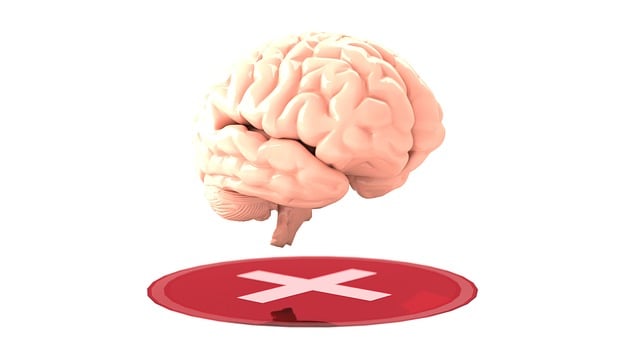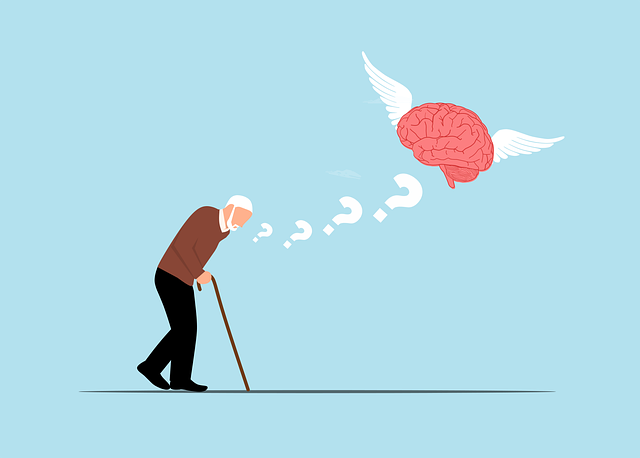Depression, a complex mental health issue characterized by persistent sadness and loss of interest, requires early recognition of signs like changes in appetite, sleep, fatigue, concentration, worthlessness, and suicidal thoughts. Centennial Women's Issues Therapy focuses on these red flags through self-awareness exercises, CBT, and mindfulness to promote emotional well-being and combat stigma. They emphasize a holistic approach with physical activity, nutrition, and sleep to prevent depression. Building resilience through therapy, positive self-talk, and stress reduction techniques equips individuals to manage life's challenges effectively. Centennial Women's Issues Therapy plays a vital role in community mental health support for women, normalizing conversations and empowering them to cultivate positive mental health habits.
Depression is a prevalent yet complex condition affecting individuals across generations. This article explores comprehensive strategies to prevent and manage depression, offering insights into various therapeutic approaches and lifestyle modifications. From recognizing subtle signs to empowering community support, we delve into effective ways to foster mental well-being. Understanding depression’s impact on women’s issues is crucial, highlighting the significance of Centennial Womens Issues Therapy in providing safe spaces for healing and growth.
- Understanding Depression: Recognizing the Signs and Symptoms
- The Role of Therapy: A Safe Space for Healing and Growth
- Lifestyle Changes for Enhanced Mental Well-being
- Building Resilience: Coping Strategies for Daily Life
- Supporting Women's Mental Health: A Community Approach
Understanding Depression: Recognizing the Signs and Symptoms

Depression is a common yet complex mental health disorder characterized by persistent feelings of sadness, loss of interest in activities once enjoyed, and a range of physical and cognitive symptoms. Recognizing the signs early is crucial for effective prevention and treatment. Common indicators include changes in appetite or sleep patterns, fatigue, difficulty concentrating, feelings of worthlessness or guilt, and recurrent thoughts of death or suicide. These symptoms can significantly impact daily functioning and overall quality of life.
At Centennial Women’s Issues Therapy, we emphasize the importance of understanding these signs as potential red flags for underlying emotional distress. Through our specialized services, we guide individuals in cultivating self-awareness exercises to identify and address personal triggers. Additionally, promoting emotional well-being involves learning effective coping strategies, which may include engaging in regular physical activity, adopting healthy sleep habits, and practicing mindfulness techniques. Moreover, self-esteem improvement plays a vital role in prevention, as building resilience against negative thoughts can bolster an individual’s mental fortitude.
The Role of Therapy: A Safe Space for Healing and Growth

Depression prevention strategies often include therapy, a safe and supportive space for individuals to explore their emotions, gain insights, and develop coping mechanisms. Centennial Women’s Issues Therapy plays a pivotal role in this process by providing an environment free from judgment, allowing clients to openly discuss their struggles and work through them with the guidance of trained professionals. This type of therapy is particularly effective in addressing the root causes of depression, which can be complex and multifaceted.
Through various therapeutic approaches, such as cognitive-behavioral therapy (CBT) and mindfulness practices, Centennial Womens Issues Therapy helps individuals cultivate stress reduction methods and mental illness stigma reduction efforts. By participating in these sessions, clients not only learn to manage their symptoms but also gain a deeper understanding of themselves. Additionally, public awareness campaigns development can be integrated into the therapeutic process, empowering individuals to share their stories and contribute to broader mental health initiatives that promote understanding and support within communities.
Lifestyle Changes for Enhanced Mental Well-being

Adopting a healthier lifestyle plays a pivotal role in enhancing mental well-being and preventing depression. Regular physical activity, a balanced diet, and sufficient sleep are cornerstones of this approach. Exercise releases endorphins, which can reduce stress and improve mood. A nutritious diet ensures the brain receives essential nutrients, promoting better cognitive function and emotional stability. Additionally, establishing a consistent sleep routine helps regulate hormones related to stress and mental health.
Centennial women’s issues therapy often emphasize these lifestyle changes as part of a holistic treatment plan. By integrating crisis intervention guidance and mental illness stigma reduction efforts, individuals can cultivate resilience and cope with life’s challenges more effectively. Moreover, burnout prevention strategies for healthcare providers are also relevant here, as self-care practices contribute to maintaining the well-being of both patients and caregivers.
Building Resilience: Coping Strategies for Daily Life

Building resilience is a crucial aspect of depression prevention and overall mental well-being. It involves cultivating inner strength and coping strategies to navigate life’s challenges. Through therapy, individuals can learn effective ways to manage stress, anxiety, and difficult emotions, empowering them to face setbacks with adaptability and perseverance. Centennial women’s issues therapy often focus on developing these adaptive skills, teaching clients to recognize triggers and implement healthy coping mechanisms.
One key element of building resilience is understanding personal strengths and resources. Mental health professionals can assist individuals in identifying their inner strength development, encouraging the use of positive self-talk and reframing negative thoughts. Regular practice of mindfulness and stress reduction techniques, such as meditation or deep breathing exercises, can also help manage symptoms of anxiety relief and promote emotional balance. By incorporating these strategies into daily life, one can better cope with stressors and reduce the risk of falling into a depressive episode, as highlighted in the Risk Assessment for Mental Health Professionals.
Supporting Women's Mental Health: A Community Approach

Supporting women’s mental health requires a community-driven approach that addresses unique challenges they face. Depression prevention strategies tailored for women often involve holistic interventions focusing on both physical and emotional well-being. Community initiatives like support groups, education programs, and accessible therapy services play a pivotal role in fostering resilience and promoting Coping Skills Development.
Centennial Womens Issues Therapy centers can be instrumental in disseminating Mind Over Matter Principles to empower women in managing stress and cultivating positive mental health habits. By integrating these strategies into everyday life, women can effectively prevent Burnout Prevention and strengthen their emotional barriers against depression. This collective effort ensures that support is readily available, normalizing conversations around mental health and fostering a supportive environment where women feel heard and understood.
Depression is a complex issue, but with the right strategies, prevention and recovery are achievable. By understanding its signs, seeking therapy as a safe space for healing, adopting lifestyle changes for improved mental well-being, building resilience in daily life, and fostering community support for women’s mental health, we can create a more supportive environment. Centennial Women’s Issues Therapy plays a crucial role in empowering individuals to navigate these strategies, offering guidance tailored to their unique needs. Together, we can break down the stigma surrounding depression and enhance the overall mental health of our communities.











